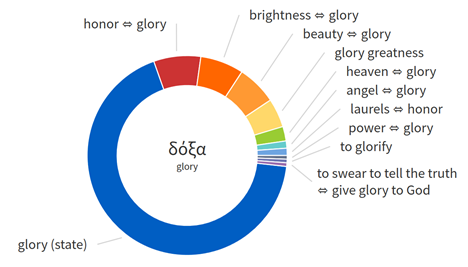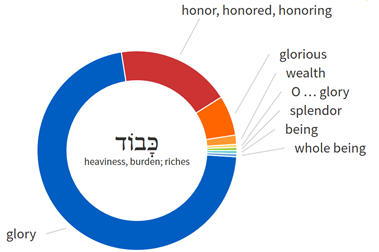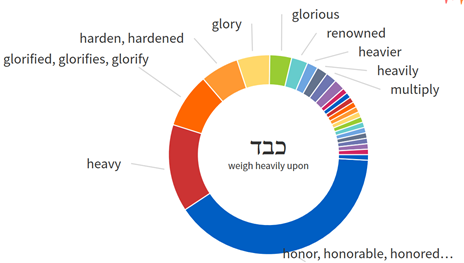Welcome @Glukrom,
I read John with a lens of the concept of "emptiness." This might help in this situation. I believe that John saw Jesus not as an Idol to be worshipped, but as an empty "sign" pointing to God. I believe this is related to the concept of glory here.
I like your reference to Isaiah 42. I also think there is an anchor point in John just before the most famous verse in the bible (John 3:16).
John 3:14-15, And just as Moses lifted up the serpent in the wilderness, so must the Son of Man be lifted up, 15 that whoever believes in him may have eternal life.
Here, in the story in Numbers 21, John is connecting Jesus to the upraised serpent that demanded obedience. Now Yahweh did not demand that the Israelites build an idol in the serpent on the pole. Instead, this was a sign of obedience. The serpent didn't heal, but it was the obedience to the command to look upon the serpent that resulted in the healing.
I believe that the Glory, for John, is to be a conduit for Yahweh's light, utterly obedient, and transparent to God's will. And this is something that cannot be done through your own will (choice) or the will of others (that's how I read the thesis of the entire gospel in John 1:12-13 - not by will of flesh/self or man/other, but by God). The idea that you have a will separate from God and that you have merit on your own as an individual is "the diagnosis" of the torah, you might say.
For John, Jesus is an "empty" sign with no merit of his own that points to God and reveals God:
John 1:18, No one has ever seen God. It is God the only Son, who is close to the Father’s heart [in the Father's lap], who has made him known.
That is that Jesus is a pointer to God so that when you look at Jesus, you see God. I see that transparency as the glory. It is a complete transparency of will as in:
John 5:19, Jesus said to them, “Very truly, I tell you, the Son can do nothing on his own, but only what he sees the Father doing; for whatever the Father does, the Son does likewise.
The paradox is that the emptiness of self/will described here is not something that can be achieved through an act of your will or someone else. You can't choose of your own will to accept this... That's like trying to bite your own teeth. As John also writes:
John 6:44, No one can come to me [Jesus] unless drawn by the Father who sent me;
The word for "drawn" means to drag "a person forcibly and against his will." And of course, paradoxically:
John 14:6b, "No one comes to the Father except through me."
But I think the word "through" is another indication of Jesus as a transparent sign which breaks through the darkness and reveals the light of God.
So someone who has the glory is not a someone - that is how I square it with your Isaiah 42 quote. They have been dragged against their will, emptied of self/agency, and now lean against God's chest (John 1:18) and are a conduit that points to God, making God known. God doesn't put his glory in idols, so Jesus is not a thing that is an idol, but an empty sign pointing to and revealing God. This is how we each can be a "child of God" exactly like Jesus, but still all be the "only begotten." Because we are not separate agents when we are empty signs.
I read John and see the concept of "belief" as a process of being convinced (dragged/drawn). John actually never uses the noun for "belief/faith" but always the verb (contrasts with the rest of the NT). For him, it is a process that happens to us, not something we do of our will.
So the glory, as I understand it, is this emptying which gets the ego out of the way and reveals God's light. See this in the Kenosis hymn of Philippians 2 and contrast it to the Lucifer poetry of Isaiah 14.
Isaiah 14, How you are fallen from heaven, O Day Star, son of Dawn! How you are cut down to the ground, you who laid the nations low! **You said in your heart, ... But you are brought down to Sheol, to the depths of the Pit.
Compare this to the Kenosis hymn from early Christianity,
Philippians 2, though he was in the form of God, did not regard equality with God as something to be exploited, but emptied himself, taking the form of a slave, being born in human likeness. And being found in human form, he humbled himself and became obedient to the point of death. ... Therefore God also highly exalted him and gave him the name that is above every name, ... Jesus Christ is Lord, to the glory of God the Father.
There is this contrast. Where the morning star would reach out his arm and grab for himself, as Adam and Eve did, Jesus spreads out his arms in obedience and is glorified.
I like this verse in Ecclesiastes to describe it:
Ecclesiastes 9:4b, ..., for a living dog is better than a dead lion.
The author of Ecclesiastes got it. His theme was that "all was emptiness" (Ecc 1:2).
Here, Jesus is the living utterly obedient living dog and the leaders of the world grabbing power form themselves are the dead lions (like the morning star from Isaiah 14). Such a dog is transparent to the light of God and is not an idol. God's glory is there present in him, but he is not present, he is empty.


